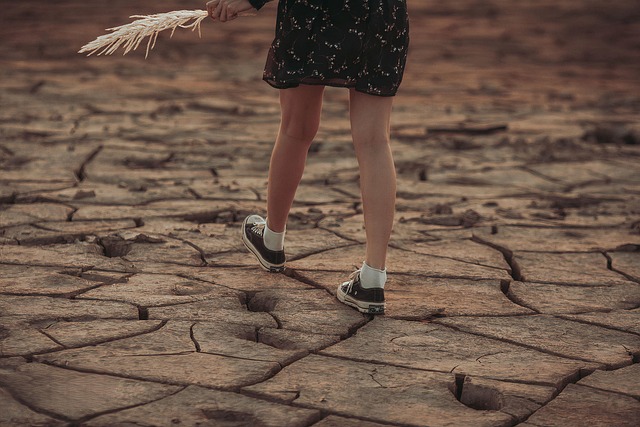The Change Academy at Lake of the Ozarks (CALO) Institute, a restorative justice program, has faced controversy over alleged abuse and inadequate support for survivors. Despite reports of positive outcomes like improved life skills and reduced recidivism, meticulous evaluation is crucial to ensure survivor safety and well-being in such models. Missouri's legal aid organizations provide specialized services to CALO survivors, including lawsuit support and therapy connections. Beyond legal processes, building supportive communities and trauma recovery programs are vital for survivors' healing and resilience.
In the heartland of Missouri, the legacy of the Change Academy at Lake of the Ozarks Institute (CALO) continues to resonate, leaving a profound impact on survivors who seek justice and healing. This article delves into the multifaceted journey of CALO survivors, exploring their experiences and the subsequent pursuit of legal remedies. We examine the unique challenges they face while navigating the path to justice and uncover initiatives fostering community support beyond legal confines.
- Understanding the CALO Institute and its Impact on Survivors
- Navigating the Road to Justice: Legal and Support Services for CALO Survivors in Missouri
- Fostering Healing and Community: Beyond Legal Action, Supporting CALO Survivors' Well-being
Understanding the CALO Institute and its Impact on Survivors

The Change Academy at Lake of the Ozarks (CALO) Institute, also known as a “restorative justice” program, aimed to provide a second chance for individuals facing legal troubles. However, its impact on survivors has been controversial and complex. The institute offered an alternative to traditional incarceration, focusing on education, skill-building, and community reintegration. Many participants reported positive outcomes, such as improved life skills, academic achievements, and reduced recidivism rates.
Despite these perceived benefits, the CALO Institute faced significant criticism from survivors and advocates who allege systemic issues within the program. Accusations of abuse, neglect, and inadequate support have been leveled against the institute. Survivors claim they were subjected to exploitation, manipulation, and harsh living conditions, which counter the stated goals of rehabilitation and personal growth. These controversies underscore the need for thorough scrutiny when implementing restorative justice models, ensuring survivor safety, well-being, and long-term support.
Navigating the Road to Justice: Legal and Support Services for CALO Survivors in Missouri

Navigating the legal system can be a daunting task, especially for survivors seeking justice. For those who have experienced trauma at institutions like the Change Academy at Lake of the Ozarks Institute, understanding their rights and options is essential. Legal aid organizations in Missouri offer specialized services tailored to support CALO survivors. These organizations provide crucial assistance with filing lawsuits, gathering evidence, and ensuring proper procedures are followed. They also connect survivors with therapists and support groups, addressing both legal and emotional needs.
Missouri’s legal framework offers protections for victims of institutional abuse, but understanding these can be complex. Legal experts in this field help survivors interpret laws related to statute of limitations, liability, and compensation. They guide each step of the process, ensuring survivors’ voices are heard and their rights protected. This support is vital in pursuing justice and holding accountable those responsible for the harm inflicted at institutions like CALO.
Fostering Healing and Community: Beyond Legal Action, Supporting CALO Survivors' Well-being

The journey towards justice for survivors of the Change Academy at Lake of the Ozarks Institute (CALO) extends far beyond legal proceedings. While lawsuits and compensation are essential steps in holding accountable those responsible for the harm inflicted, they cannot fully heal the wounds suffered by these individuals. Fostering a supportive community is crucial to aid CALO survivors in their path to healing and restoration.
Support networks can play a pivotal role in empowering survivors to process their experiences, share stories, and connect with peers who understand their struggles. Organizations dedicated to trauma recovery, mental health professionals, and peer support groups can all contribute to creating a safe space for CALO survivors to begin the process of healing and rebuilding their lives. By providing resources, counseling, and community engagement opportunities, these initiatives help survivors navigate the challenges they face, fostering resilience and a renewed sense of belonging.
The journey towards justice for survivors of the Change Academy at Lake of the Ozarks Institute (CALO) is a complex yet essential process. By understanding the unique impact of CALO on its victims and providing tailored legal and support services, Missouri can offer much-needed healing and accountability. Beyond legal action, fostering communities that prioritize the well-being of CALO survivors is crucial for their long-term recovery. Through advocacy, education, and compassionate support, we can ensure that the experiences of these survivors are acknowledged, and they receive the resources necessary to rebuild their lives.
